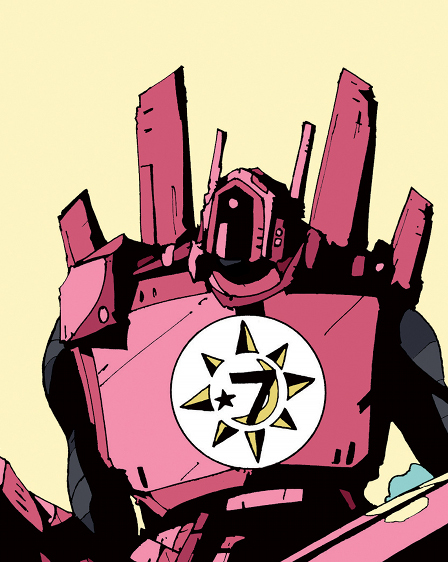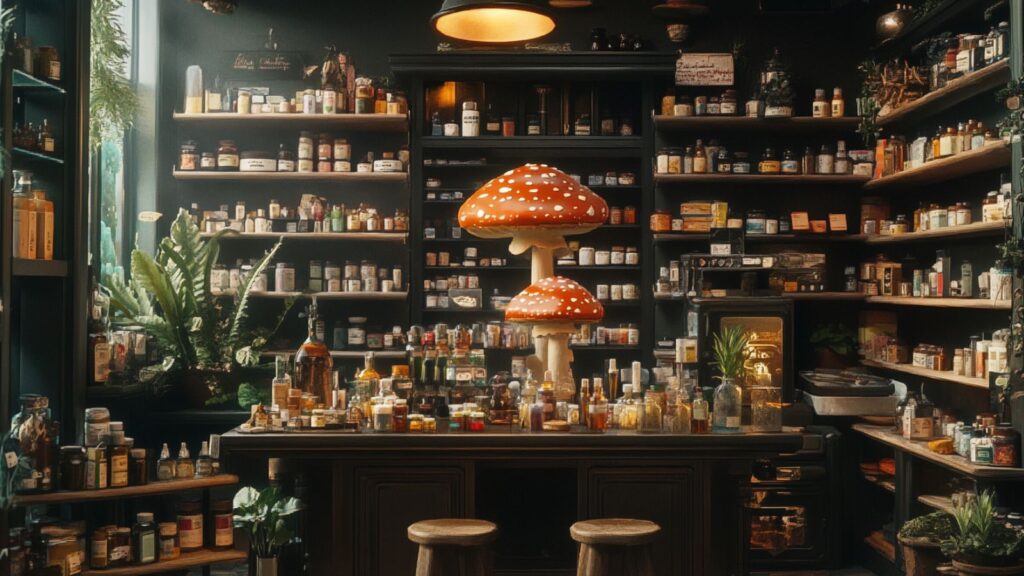The following is excerpted from Tripping with Allah: Islam, Drugs, and Writing.
As of this moment, there is not yet a federal ruling on ayahuasca. the sacred vine used in the brew is not illegal; people sell them on eBay with the disclaimer "for research purposes only." The problem is the leaves and their sacred DMT, a serotonergic psychedelic that qualifies as a Schedule I controlled substance under Chapter 13 of the Controlled Substance Act. When used with the vine, the leaves produce effects of intense introspection and emotional modification, accompanied by the production of vivid visual imagery and encounters with divine beings, for which I could get twenty years in prison.
Ayahuasca's legal status remains a complicated matter because while the tea is certainly a drug — described by no less an expert than William S. Burroughs as the strongest drug he had ever taken — it is also a religious sacrament, and the U.S. government occasionally seems to respect freedom of religion more than other civil liberties. Upon news that Santo Daime folks in Oregon have won legal protection for their use of ayahuasca, the Mecca church remains hopeful but cautious.
If I were in Peru, it would be less complicated, since the government there has officially recognized ayahuasca as traditional medicine, cultural heritage, and spiritual practice. A relationship to particular drugs can determine your relationship to the state. Doesn't even have to be a drug, really; some plant life cannot help but speak truth to power. Because Muslims had introduced oranges to Spain, the Christian Reconquista called for a destruction of orange trees. to properly take back Spain for Jesus, it was necessary to purge the land of infidel fruit.
In Cuban Counterpoint, a treatment of tobacco and sugar as the main actors in Cuban history, Fernando Ortiz reads the economic lives of the crops as expressions of their innate essences. According to Ortiz, tobacco is masculine, individualist, and the source of Cuba's national pride, which it exports to the world; sugar is feminine, capitalist, and an import from the same outsiders that brought colonialism and subjugation. Tobacco is natural, smoked pure; sugar is produced from a "long series of complicated physiochemical operations." Ortiz says that tobacco is born, "the voluntary offering of nature," while sugar is made by human power, and "impossible without machinery." Ortiz even reads the crops through human racial politics: tobacco has integrity because it does not change its color, whereas sugar starts as brown but is "bleached and refined until it can pass for white, travel all over the world . . . and reach a better price, climbing to the top of the social ladder."
Today, marijuana remains mostly illegal in the united States, whereas alcohol is slightly regulated; in Iran, it's the opposite. America's nineteenth-century war on opium targeted Chinese laborers who threatened to take railroad jobs from white men; its twentieth-century war on marijuana began with fears of Mexican farm laborers taking jobs from white men; and the movement toward Prohibition was motivated in part by prejudice against Irish immigrants and in part by America's entry into World War I and its throbbing with anti-German hatred.
The hysteria in the 1960s over marijuana and LSD had as much to do with antiwar movements and their members' supposed use of those drugs. The 1980s War on Drugs was a war on black people, which explains why, even when more white people used illegal drugs, more black people did time for it. That's part of the humor in George H. W. Bush, who would go on to become the first U.S. president to hold up a bag of crack on national television, telling the country during his 1988 campaign, "We are not going to be divided by class."
In the post-9/11 era, Islam was positioned as something like a drug, the new poisoning of the mind from which Americans must be protected. We went from the smears of Bill Clinton as a secret pothead to the smears of Barack Obama as a secret Muslim. Watch that old cautionary tale Reefer Madness, in which marijuana turns decent American kids into psychotic murderers and rapists throwing away their good lives for sanitariums and suicide, and then turn on fox news any day of the week and see what it says about Muslims. The next tragedy may be that of your daughters or your sons . . . TELL YOUR CHILDREN!
"Too many Americans don't know or understand how it threatens the very fabrics of our republic," says Islamic studies scholar Chuck Norris on shari'a. Muslims and drug religionists both know a tension with the state that comes with outlaw prayers. We have a War on Drugs that includes some holy sacraments, and a War on terror that might also be a War on Islam, despite the reassurances of more than one president. There can be no Santo Daime church in America as a fixed location, a "real" church with brick and mortar and a reliable address, at least not in this American Mecca, and Muslims can't build a mosque without facing protests and even proposals of legislation; in Tennessee, people have tried to make it a felony to be Muslim.
My Megabus trip to Mecca happens to be around the time that a toad-faced congressman is holding hearings in Washington on American Muslims and their questionable loyalty to the United States. Santo Daime churches fight for their legal right to exist, a privilege that every other Christian denomination assumes to be protected by the Constitution, and Muslims fight to keep theirs. Speaking at a church that presumably faced no such challenge, Newt Gingrich expressed his fear that "if we do not decisively win the struggle over the nature of America," his grandchildren will be forced to grow up in a "secular atheist country, potentially one dominated by radical Islamists and with no understanding of what it once meant to be an American."
I had failed to realize that the goal of radical Islamists was to bring America to secular atheism, and I can only speculate as to what he means by the "nature of America" or the "we" that joins him in his struggle. At the very least, it seems safe to say that his "we" cannot include me. When newt Gingrich closes his eyes and imagines the nature of America, he doesn't see a Muslim consuming hallucinogens.
I am a Muslim with plans of tripping with Allah, if Allah so wills, making me simultaneously a participant in two religions of high discomfort in our present America. Muslim writers on interfaith missions have placed Islam into dialogue with Christianity, Judaism, Buddhism, and even secularism, seeking common ground and shared values. No one has done it with Islam and drugs. This might be an appropriate time to write the book, which could be the scripture for a post-Mother Wheel America, because Islam and drugs both say so much about America and the nature of America. Both have always stood at the gates, and sometimes they have been forced to stand together.
In 1937, Harry J. Anslinger, commissioner of the federal narcotics Bureau, alerted the nation to marijuana's dangers by recalling a group of Isma'ili Muslims known as the Assassins — the word "assassin" being derived from hashish — who were "noted for their acts of cruelty." Anslinger was a bit off with his chronology, claiming that the Assassins, who emerged a few centuries after Muhammad, came a thousand years before Christ, but he got his point across: marijuana was the green devil of crazy brown-skinned killers, threatening to destroy the rational Western mind. "The word ‘assassin,'" he promised, "very aptly describes the drug."
In the state's vision, marijuana was blackness and brownness assassinating the white nature of America, malforming our good Aryan American children from superior Christian intellects to lustful, deranged Mahometan animality. from angelic beings of the brain to degraded creatures of the body.
This could provide insight not only on the prohibition of drugs but also on their legalization — that is, why they could become legal for some and not others. The spiritual use of peyote had been persecuted for centuries by Europeans; in Mexico City in 1620, the Spanish inquisition decreed the cactus to be an enemy of the Catholic Church. Peyote was similarly attacked in the United States, with over a dozen states outlawing its possession, until the federal government allowed its use for spiritual purposes — with a racial qualifier, as the user must be "Indian." A federal act as recent as 1994 protects native American peyote users from both state and federal harassment; however, non- native American seekers have had a hard time obtaining similar legal protection. Red people can run naked through the desert and trip out with their magical plants and false gods and paint with all of the colors of the wind, says our government, but the rationalism and clarity of the White Mind must be protected at all costs.
The racism in American thought on drugs could also help us understand why the ritualized slaughter of animals in Islam or Santeria, a religion mixing elements of African and Caribbean traditions, will strike many as more disturbing and offensive to the nature of America than the mass torture — electrocuting, castrating, malnourishing, overcrowding, and chemical pumping — of animals in our corporate meat factories. Consistency doesn't seem to be an issue. likewise, to imprison human beings is modern, and flogging them is primitive. To murder a criminal with stones or a sword is barbaric, but technological advancements in the matter, such as lethal injection, electrocution, and gas chambers, make execution appear to be cleaner than it is. The commodification of women as consumer products in porn, strip clubs, and American culture at large is progressive, but veiling and polygamy belong to monsters from a lost premodern world. One society disciplines its female bodies through anorexia and plastic surgery, the other through acid in the face. What's at stake here is "civilization."













